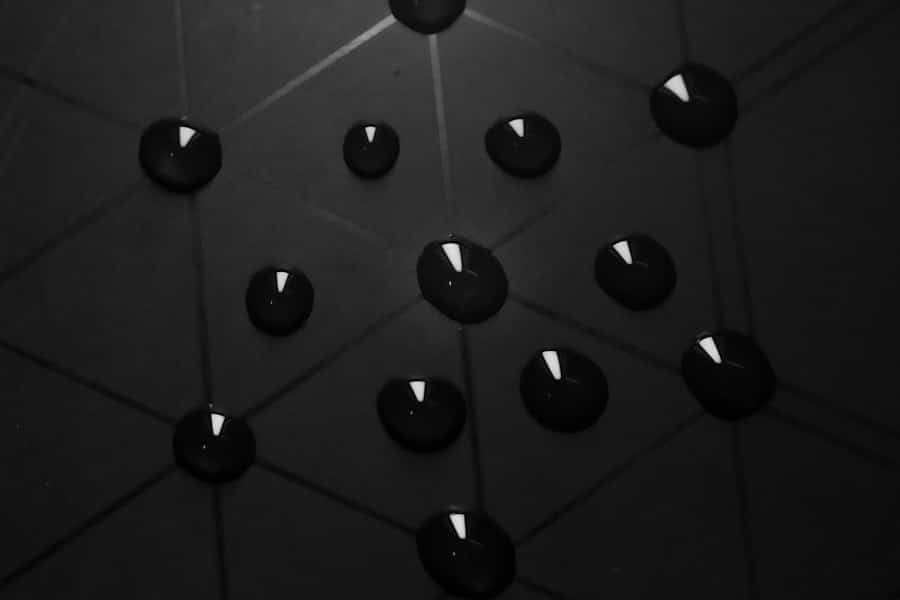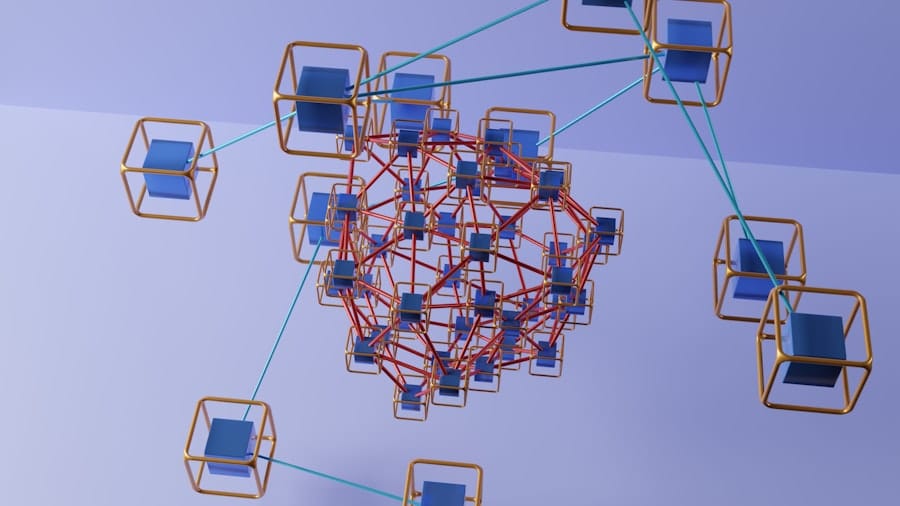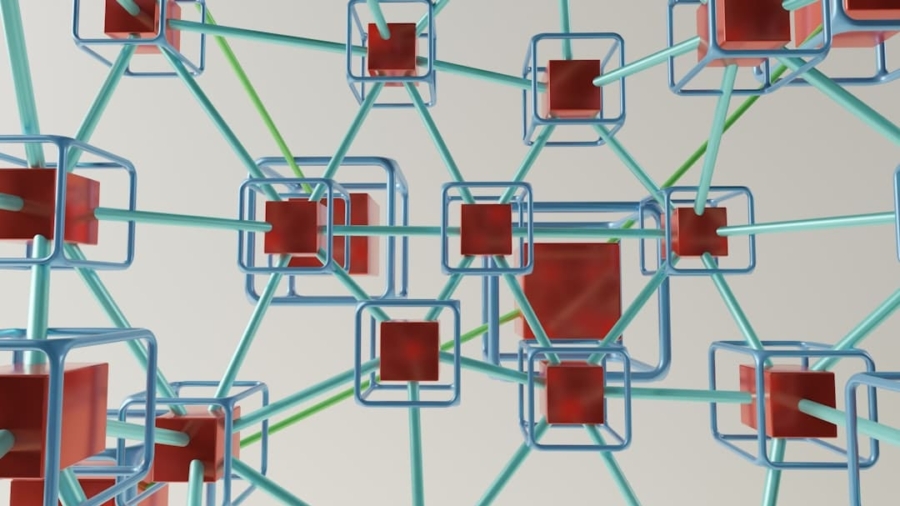Decentralized Autonomous Organizations, commonly referred to as DAOs, represent a novel approach to organizational governance that leverages blockchain technology to create a system of management that is both decentralized and automated. At their core, DAOs are entities that operate through smart contracts—self-executing contracts with the terms of the agreement directly written into code. This structure allows for decision-making processes to be executed without the need for a central authority, enabling a more democratic and transparent form of governance.
Members of a DAO typically hold tokens that grant them voting rights, allowing them to participate in the decision-making process regarding the organization’s direction, funding, and operational changes. The concept of DAOs emerged from the broader movement towards decentralization in the digital space, particularly within the cryptocurrency community. The first notable DAO, known as “The DAO,” was launched in 2016 on the Ethereum blockchain and aimed to create a venture capital fund that would be governed by its token holders.
Although it faced significant challenges, including a high-profile hack that led to its dissolution, The DAO laid the groundwork for future iterations and innovations in decentralized governance. Today, DAOs can be found in various sectors, including finance, art, and social initiatives, each adapting the core principles of decentralization and autonomy to meet their specific needs.
Key Takeaways
- DAOs are organizations that operate without centralized control, using smart contracts and blockchain technology to automate decision-making and governance processes.
- DAOs have the potential to disrupt traditional organizations by enabling more efficient and transparent decision-making, reducing the need for intermediaries, and providing greater inclusivity for stakeholders.
- Blockchain technology plays a crucial role in DAOs by providing a secure and transparent platform for executing smart contracts, recording transactions, and enabling decentralized governance.
- Challenges and risks of DAOs include security vulnerabilities, regulatory uncertainty, and potential for governance disputes, requiring careful consideration and risk management.
- The future of governance and decision-making in DAOs holds promise for more democratic and transparent processes, with potential applications in various industries such as finance, healthcare, and supply chain management.
The Potential Impact of DAOs on Traditional Organizations
The rise of DAOs has the potential to significantly disrupt traditional organizational structures by introducing a model that prioritizes transparency, inclusivity, and efficiency. In conventional organizations, decision-making is often hierarchical, with power concentrated in the hands of a few individuals at the top. This can lead to inefficiencies, lack of accountability, and a disconnect between leadership and the broader workforce.
In contrast, DAOs empower all members to have a voice in governance through token-based voting systems. This democratization of decision-making can foster greater engagement and commitment among participants, as they feel more invested in the outcomes of their collective actions. Moreover, DAOs can streamline operations by automating processes through smart contracts.
For instance, funding decisions can be executed automatically based on predefined criteria agreed upon by members, reducing the time and resources spent on bureaucratic procedures. This efficiency can lead to faster innovation cycles and a more agile response to market changes. Additionally, the transparency inherent in blockchain technology means that all transactions and decisions are publicly recorded, which can enhance trust among participants and stakeholders.
The Role of Blockchain Technology in DAOs

Blockchain technology serves as the backbone of DAOs, providing the infrastructure necessary for their operation and governance. At its essence, blockchain is a distributed ledger technology that ensures data integrity through cryptographic security and consensus mechanisms. In the context of DAOs, blockchain enables the creation of smart contracts that automate processes and enforce rules without human intervention.
This automation is crucial for maintaining the integrity of the organization’s operations and ensuring that decisions are executed as intended. Furthermore, blockchain facilitates transparency and traceability within DAOs. Every transaction or decision made within a DAO is recorded on the blockchain, creating an immutable history that can be audited by any member or external observer.
This level of transparency is particularly important in fostering trust among participants, as it mitigates concerns about corruption or mismanagement. Additionally, blockchain technology allows for seamless cross-border transactions and interactions, enabling DAOs to operate globally without being hindered by traditional financial systems or regulatory barriers. As blockchain technology continues to evolve, it is likely that new innovations will further enhance the capabilities and functionalities of DAOs.
Challenges and Risks of DAOs
Despite their promising potential, DAOs are not without challenges and risks that must be addressed for them to achieve widespread adoption. One significant concern is the issue of governance itself; while DAOs aim to democratize decision-making, this can lead to complications such as voter apathy or manipulation by large token holders who may exert disproportionate influence over outcomes. The challenge lies in designing governance structures that ensure equitable participation while preventing centralization of power within the organization.
Security is another critical risk associated with DAOs. The reliance on smart contracts means that any vulnerabilities in the code can be exploited by malicious actors, leading to significant financial losses or operational disruptions. The infamous hack of The DAO in 2016 serves as a cautionary tale about the importance of rigorous security audits and testing before deploying smart contracts in live environments.
Additionally, regulatory uncertainty poses a challenge for DAOs; as they operate outside traditional legal frameworks, questions arise regarding their legal status, liability for actions taken by members, and compliance with existing laws. Navigating these complexities will require collaboration between developers, legal experts, and regulators to create a safe environment for DAOs to thrive.
The Future of Governance and Decision-making in DAOs
As DAOs continue to evolve, so too will their approaches to governance and decision-making. One potential future direction is the integration of more sophisticated governance models that leverage advanced algorithms and artificial intelligence to facilitate decision-making processes. For instance, decentralized voting systems could incorporate mechanisms such as quadratic voting or conviction voting to better reflect the preferences of participants while minimizing the influence of large stakeholders.
These innovative approaches could enhance fairness and inclusivity within DAOs. Moreover, we may see an increased emphasis on reputation systems within DAOs that reward active participation and contributions from members. By establishing metrics for evaluating member engagement and expertise, DAOs could create a more meritocratic environment where individuals are recognized for their efforts rather than merely their token holdings.
This shift could lead to more informed decision-making processes and foster a culture of collaboration and accountability among participants. As these governance models mature, they will likely influence not only how DAOs operate but also how traditional organizations rethink their own governance structures.
The Evolution of DAOs in Different Industries

DAOs have begun to permeate various industries beyond their initial roots in cryptocurrency and finance. In the art world, for example, DAOs are being utilized to democratize access to funding for artists and creative projects. Platforms like “Art Blocks” allow artists to collaborate with collectors through decentralized funding mechanisms that enable community-driven curation and support for new works.
This model not only empowers artists but also fosters a sense of community among collectors who share a vested interest in promoting innovative art. In the realm of social impact, DAOs are being employed to address pressing global challenges such as climate change and poverty alleviation. Initiatives like “Gitcoin” leverage DAO structures to fund open-source projects aimed at solving social issues through community contributions.
By pooling resources from diverse stakeholders, these DAOs can allocate funds more effectively while ensuring that projects align with community values and priorities. As more industries recognize the potential of DAOs to drive innovation and collaboration, we can expect to see an expansion of their applications across sectors such as healthcare, education, and supply chain management.
Legal and Regulatory Considerations for DAOs
The legal landscape surrounding DAOs remains complex and largely uncharted territory. As decentralized entities operating outside traditional corporate structures, DAOs often face challenges related to legal recognition and liability. One pressing question is whether DAOs should be classified as legal entities in their own right or if they should be treated as partnerships or cooperatives under existing laws.
This ambiguity can create difficulties in areas such as contract enforcement, taxation, and intellectual property rights. Regulatory bodies around the world are beginning to take notice of DAOs and their implications for existing frameworks. Some jurisdictions have started exploring specific regulations tailored to accommodate decentralized organizations while ensuring consumer protection and compliance with anti-money laundering (AML) laws.
For instance, Wyoming has enacted legislation recognizing DAOs as limited liability companies (LLCs), providing them with legal status while maintaining their decentralized nature. However, this regulatory patchwork can create uncertainty for DAO operators who may find themselves navigating conflicting laws across different regions. As the ecosystem matures, ongoing dialogue between stakeholders—including developers, regulators, and legal experts—will be essential in shaping a coherent regulatory framework that supports innovation while safeguarding public interests.
Opportunities for Individuals and Investors in the DAO Ecosystem
The emergence of DAOs presents numerous opportunities for individuals and investors looking to engage with this innovative ecosystem. For individuals seeking active participation in governance processes, joining a DAO can provide a platform for influencing decisions that align with their values or interests. Whether it’s contributing to funding decisions in an art-focused DAO or participating in community initiatives aimed at social change, individuals can find meaningful ways to engage with like-minded peers while having a direct impact on organizational outcomes.
For investors, DAOs offer unique opportunities for capital allocation in projects that may not fit within traditional investment frameworks. By participating in token sales or contributing funds to specific initiatives within a DAO, investors can support innovative projects while potentially benefiting from future returns as those projects succeed. Additionally, as more DAOs emerge across various sectors, investors may find opportunities for diversification within their portfolios by engaging with different types of decentralized organizations—ranging from those focused on technology development to those aimed at social impact.
As the DAO ecosystem continues to grow and evolve, it will likely attract a diverse array of participants who are drawn by the promise of decentralized governance and collaborative decision-making. By embracing this new paradigm, individuals and investors alike can play an active role in shaping the future landscape of organizations across industries while exploring new avenues for engagement and investment.
In exploring the future of Decentralized Autonomous Organizations (DAOs), it’s essential to consider the technological tools that can support their growth and efficiency. One such tool is scheduling software, which can streamline operations and enhance collaboration within DAOs. For those interested in optimizing their schedules, the article on the top 10 best scheduling software for 2023 provides valuable insights into the latest tools that can help manage time and resources effectively. By integrating advanced scheduling solutions, DAOs can improve their decision-making processes and operational efficiency, paving the way for a more organized and productive future.
FAQs
What is a Decentralized Autonomous Organization (DAO)?
A Decentralized Autonomous Organization (DAO) is an organization that operates without a central authority and is governed by a set of smart contracts on a blockchain. It is designed to be transparent, secure, and autonomous.
How does a DAO operate?
A DAO operates through a set of rules and protocols encoded in smart contracts on a blockchain. These rules dictate how the organization makes decisions, manages funds, and executes tasks without the need for a central authority.
What are the potential benefits of DAOs?
Some potential benefits of DAOs include increased transparency, reduced operational costs, improved security, and the ability to automate decision-making processes. DAOs also have the potential to enable new forms of collaboration and governance.
What are the challenges facing DAOs?
Challenges facing DAOs include regulatory uncertainty, security vulnerabilities, scalability issues, and the potential for human error in coding smart contracts. Additionally, DAOs may face challenges in terms of accountability and decision-making processes.
What is the future of DAOs?
The future of DAOs is uncertain, but they have the potential to revolutionize traditional organizational structures and governance models. As blockchain technology continues to evolve, DAOs may become more prevalent in various industries and sectors. However, regulatory and technological challenges will need to be addressed for DAOs to reach their full potential.

